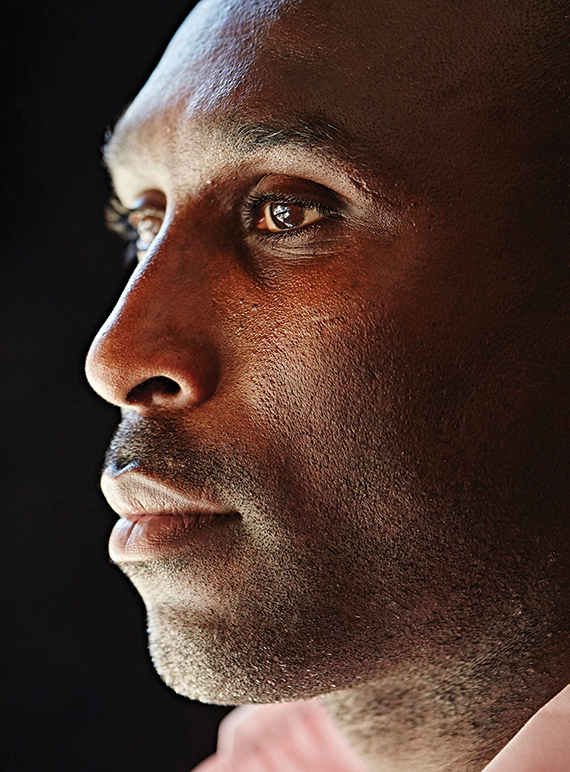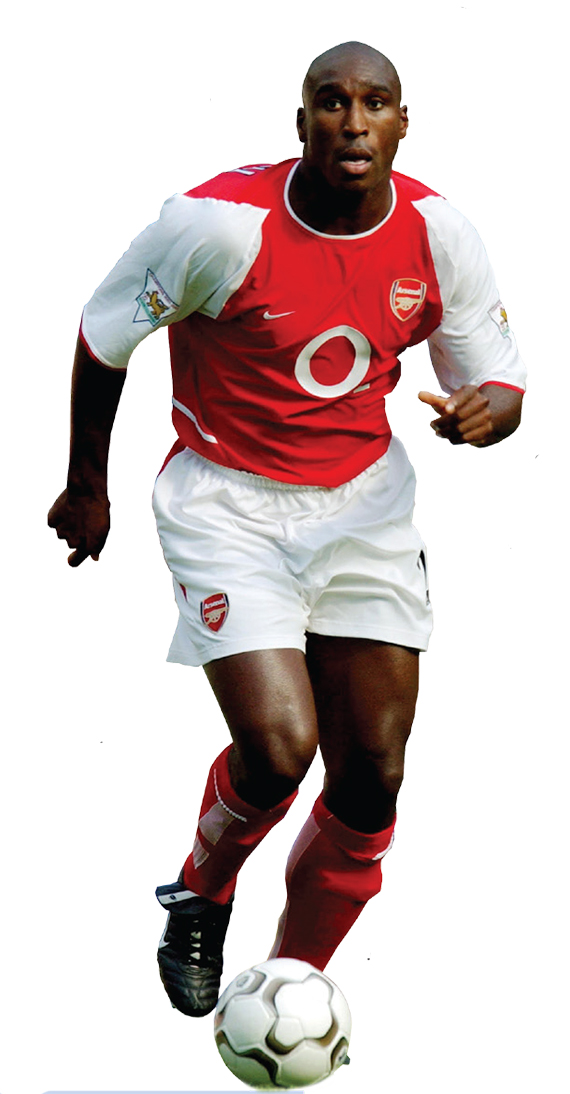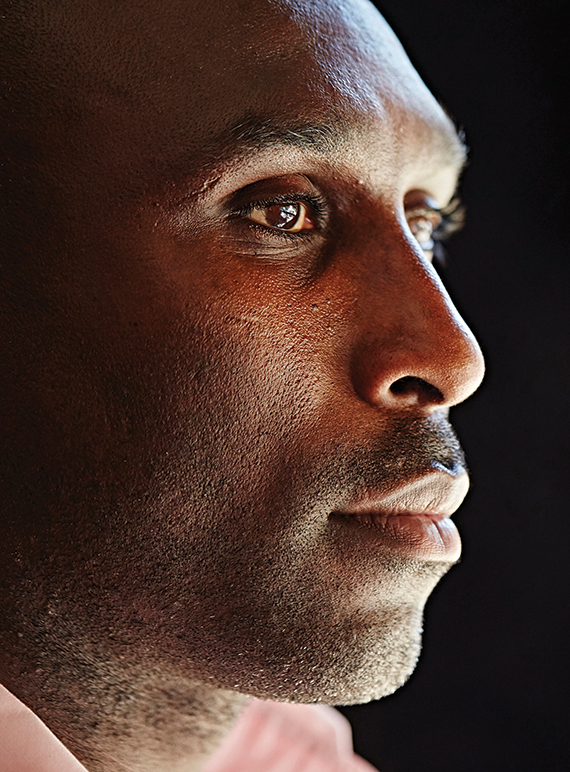THE OUTSIDE VIEW: Former England footballer Sol Campbell wants to be the Conservative candidate to become London mayor. Alex Horne met him to find out his game plan for the capital
 On one of the hottest days of the year so far, Sol Campbell has dressed for the occasion. But while his open-neck shirt, shorts, sunglasses and straw hat might look more beach club than business, the football legend is here to prove he can hold his own when it comes to the latter.
On one of the hottest days of the year so far, Sol Campbell has dressed for the occasion. But while his open-neck shirt, shorts, sunglasses and straw hat might look more beach club than business, the football legend is here to prove he can hold his own when it comes to the latter.
A wise strategy – particularly if he has any chance of being taken seriously in his bid to become the Conservative candidate for London mayor. Campbell may have won 73 England caps and was one of the national team’s youngest captains, but the leap from pitch to politics is a big one. And he knows it.
“Other guys have been in parliament for a long time and have their aides working for them and all that network going on,” he says, shades and hat now off, over a glass of sparkling water at an Italian near his Chelsea home. “I’m starting from a low place.”
But while eyebrows may have been raised when Campbell confirmed his plans to run for mayor back in February, what he does have on his side is the power of celebrity. That and a relaxed, open approach to policy ideas – perhaps a result of his relative naivety in the political world. It becomes clear almost immediately that he lacks the guardedness that is instilled in career politicians and meets questions with enthusiasm rather than caution.
So what would the Plaistow-born 40-year-old do if his bid was successful? What would his policies mean for London in general and the property industry in particular? And why does the legendary ex-footballer want to follow in the footsteps of Boris Johnson?
The defender
As you might expect from a mayoral candidate who was born in London’s East End – the youngest of 12 children – much of Campbell’s focus is on intense development in deprived areas of the capital. While his plan to call them “Sol hubs” might not capture everyone’s imagination, the thinking behind them is part of his ambitious strategy to “redesign London to give everyone opportunities”.
Campbell explains his hubs: “I want to get businesses to set up secondary arms in places like Acton, Ealing and Tottenham. They would be areas with low rents but quality environments. They could be platforms for SMEs and local businesses.”
He hopes the hubs could redistribute prosperity across the city, but also act as a springboard for local people. “They should be places for talent to grow,” he says. “Local kids could work in a nearby hub and then the company may ask them to work in central London.”
Campbell’s concerns over the disparity between central London and the outer zones is a subject he returns to often in the interview.
“Everything is centralised in London,” says Campbell. “It’s a scary place that is almost on lockdown. I want to provide help to people outside central London, where it’s badly needed.”
Help, yes – but Campbell is wary of gentrification. “London’s diversity is the key that keeps it up there beyond the rest of the cities around the world,” he says. “If we’re not careful, in the next 10 years, people will be pushed out of London.”
And he has no qualms about apportioning blame for some of these problems. “Property people love to have hotspots and they say ‘this is the new hotspot’ and they make their money and everyone keeps moving around,” he says in a matter-of-fact tone. “We need to get big corporate companies to give something back.”
“We need to sit down with developers and see eye to eye,” he says. “I need to tell them the story and convince them there is more to all this than just profit – let’s do something special for London.
“We must use the moral side of the argument and say to a business, ‘Instead of getting taxed even more, let’s use the money for these [Sol] hubs’. That way, they might give something back as well – and everyone’s happy.”
Firepower
Negotiating funding deals is a major part of the current mayor’s job. Boris Johnson’s keenness to attract overseas investment is one of the defining qualities of his mayoralty. It has seen him heaped with praise and criticism in equal measure.
Campbell would take a different approach.
 “You’ve got Chinese money coming into the Docklands just for Asian investors,” he says. “I don’t know how many people are going to benefit from that. I understand why investors go straight to central London, but somewhere along the line, someone has to say, ‘Yes, you can invest here, but it needs to benefit the whole of London’.”
“You’ve got Chinese money coming into the Docklands just for Asian investors,” he says. “I don’t know how many people are going to benefit from that. I understand why investors go straight to central London, but somewhere along the line, someone has to say, ‘Yes, you can invest here, but it needs to benefit the whole of London’.”
The hope is that with inward investment would come other benefits that could unlock the Sol hubs. “We would explain to the investors that we want to open up a bit more of London with some of their arms – technical arms, IT arms or whatever,” says Campbell.
Convincing the private sector to adapt its behaviour is a vital part of Campbell’s plan, but the boroughs also have a big role to play in making London a fairer place to live. Despite current austerity, Campbell wants to give local authorities more “firepower” to build council homes.
One possible source of that firepower is the bond market, an idea Campbell shares with potential Labour candidate David Lammy. He also has some other thoughts on potential solutions. “I’m looking at getting a fund together to help councils and, alongside that, have an insurance company look after the money that gets loaned out,” he says.
Although the specifics of how this would work are unclear, it is something Campbell feels would give communities security. “People want that assurance that if something goes wrong, there are insurance packets to pay out,” he says.
The third and most radical Campbell plan to hold back the tide of gentrification is new regulation. “One of my ideas is controlling the uptick in how much you can sell a house for,” he says. The details of this policy are yet to be settled but, in Campbell’s words: “This is to stop the situation of people being locked out of areas.”
Campbell’s plan appears to be a way of reversing the effects of Right to Buy. He says: “If you were born in central London in a council flat and you want to live in your own area, it’s hard to find a flat because it’s all private housing, most have been sold off and they are way out of people’s price range.”
Watershed moment
Despite his hard stance against businesses and his plans for market interventionism, Campbell sees no contradiction between his ideas and his membership of the Tory party. “The Conservatives are all about growth, aspiration and people being lifted up,” he says. “I think that’s a good thing.”
This emphasis on aspiration is what drew Campbell to the Tories – arguably a surprising political allegiance given his background, from a rough neighbourhood in Plaistow. But it has been the journey all the way to Chelsea that he says has made him a Conservative. “Where I’m from and where I grew up is a story that connects with a lot of people who want to start in one place and rise to another,” he says. “That’s a Conservative way of thinking.”
But why run for mayor? What does he think he can achieve for London and give back to Londoners?
“I want to provide a helping hand in lifting people up,” says Campbell.
He adds that speaking about racism in football in the House of Commons as part of Keith Vaz’s Rainbow Lecture series last year was a “watershed moment”.
That was the first time Campbell had been surrounded by what he calls “the great and good of football and politics” and realised the potential power of his public persona.
What is refreshing is that despite his background and his celebrity, he is under no illusion over his shortcomings in this particular race. “There are a whole load of things I’ve got to learn,” he says. “It’s going to be very hard, but I have to just be me. Of course you have to know your stuff, but I also want to be authentic and real – I can connect with all of London.”
And while he is here to talk business, Campbell has retained a sense of humour about his fledging political career. When asked where his bid might take him, he quips: “Well, there’s always prime minister.”
Watch out, Westminster – Sol is shooting for the top.












